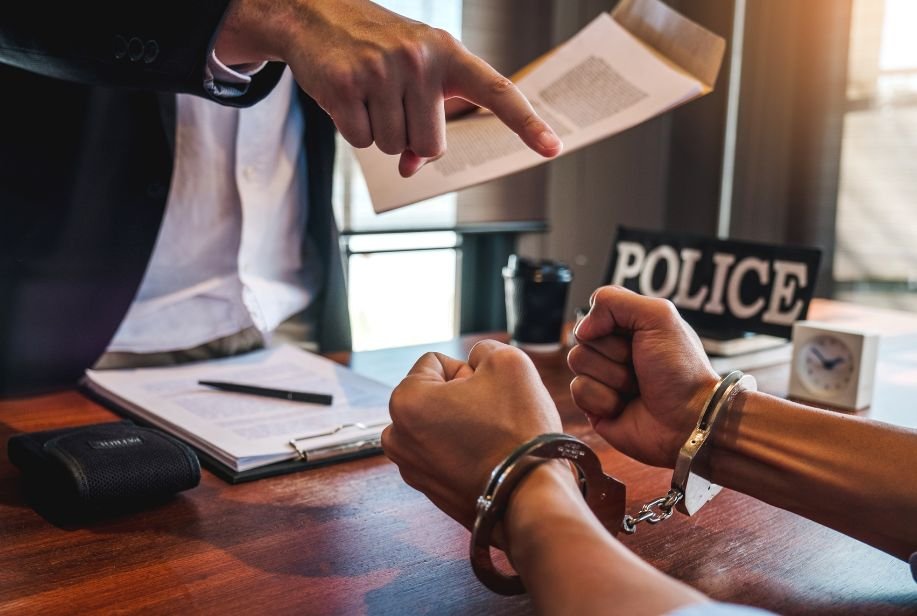Facing a criminal trial in BC is overwhelming, especially in the early stages of the process. Gaining a clear understanding of how a criminal trial unfolds can help you approach the situation with greater confidence. Trials in British Columbia follow a structured series of steps, each with specific procedures, rights, and responsibilities. This blog breaks down each stage of a criminal trial, explains what to expect at every step, and outlines how effective defence strategies can help protect your rights throughout the process. Understand the role of digital evidence in criminal trials.
Step 1: First Criminal Trial in BC Appearance and Disclosure
The first appearance in court is not a trial. It is an administrative hearing where the charge is formally presented, the next steps are set, and the Crown prosecutor provides “disclosure.” Disclosure includes the evidence the Crown intends to rely on, such as police reports, witness statements, and physical evidence.
Anyone facing charges must consult a criminal defence lawyer before their first appearance. Having legal guidance early ensures you understand the charges, your rights, and your options moving forward.
Step 2: Entering a Plea
After disclosure, the accused must decide whether to plead guilty or not guilty. A guilty plea usually leads directly to sentencing, though the defence and Crown can still make submissions about the sentence.
If the accused pleads not guilty, the case moves to trial. This decision is critical and should always be made after careful consideration and discussion with a criminal defence lawyer.
Step 3: Bail Considerations
Although bail is determined before trial, it directly affects how the case proceeds. If bail is granted, the accused can prepare their defence while living in the community. If denied, they remain in custody until trial. Bail often comes with conditions such as curfews, reporting to a supervisor, or travel restrictions.
Step 4: Preliminary Hearing (for Serious Cases)
For serious indictable offences, the case may include a preliminary hearing in Provincial Court before going to trial in Supreme Court. The purpose is not to decide guilt but to determine whether there is enough evidence to justify a trial.
At this hearing, the Crown presents evidence, and the defence may cross-examine witnesses. If the judge finds insufficient evidence, the charges can be dismissed. If there is enough, the case proceeds to trial.
Not all cases require a preliminary hearing, but where applicable, it is a significant step in trial preparation.
Step 5: Trial Preparation
Before the trial begins, the defence and the Crown spend significant time preparing their cases. Preparation can include:
- Reviewing disclosure materials in detail
- Interviewing witnesses
- Filing motions to challenge or exclude evidence
- Developing legal arguments
- Drafting opening and closing statements
This stage is critical to ensure each side is ready to present its case effectively. For the accused, it is also an opportunity to work closely with their lawyer and fully understand the process ahead.
Step 6: The Trial
The trial is the central stage of the criminal process. In BC, trials can take place in Provincial Court (for less serious offences) or Supreme Court (for more serious or complex matters). Trials may be heard by only a judge or by a judge and jury.
The Order of a Trial
- Opening Statements – The Crown outlines its case and evidence. The defence may give an opening statement immediately or wait until after the Crown’s evidence.
- Crown’s Case – The Crown presents evidence and calls witnesses, who may then be cross-examined by the defence.
- Defence’s Case – The defence may call witnesses and experts. The accused may testify, but is not required to.
- Closing Submissions – Both sides summarize their positions, highlight the strengths in their case, and challenge weaknesses in the other side’s evidence.
This process ensures fairness and allows both sides to present their case fully.
Step 7: The Verdict
After hearing all the evidence and submissions, the judge or jury must decide whether or not the accused is guilty.
- In judge-alone trials, the judge provides reasons for their decision.
- In jury trials, jurors deliberate privately and must reach a unanimous verdict.
If the accused is found not guilty, they are acquitted, and the charges are dismissed. If found guilty, the process moves to sentencing.
Step 8: Sentencing
If the accused is found not guilty, the process ends there, and the person is acquitted. However, if a guilty verdict is rendered through a plea or after trial, the case proceeds to sentencing. A sentence may be anything from a fine to conditional sentences served in the community to imprisonment. Judges in British Columbia are required to follow certain principles provided for in the Criminal Code of Canada, which include proportionality, rehabilitation, and protecting the public.
At sentencing, both the Crown and defence may make submissions on what they believe the appropriate punishment should be. These submissions often take into account the seriousness of the offence, the offender’s background, and any mitigating or aggravating factors.
Step 9: Appeals
After trial and sentencing, either side may have grounds to appeal. An appeal must be based on errors in law, procedure, or facts that could have affected the outcome of the case.
An appeal is not a new trial, it is a review of the record by a higher court. In BC, appeals are heard at either the Supreme Court (Summary Conviction Appeal) or at the British Columbia Court of Appeal (Indictable Appeal).
Understanding each stage of a criminal trial in BC helps accused persons prepare, work effectively with their lawyer, and protect their rights. With the guidance of experienced legal counsel, navigating this complex system and building a strong defence is possible.
A criminal trial in BC is complex, and every stage, from the first appearance to a potential appeal, can have lasting consequences on your future. Don’t face the process alone. Contact Michael R. Shapray, an experienced criminal defence lawyer, for trusted guidance, strategy, and strong advocacy in court. Call 604-725-4300 today to arrange a free initial consultation.



